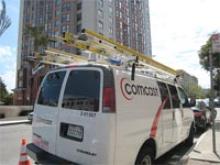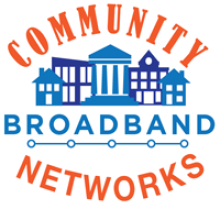Need Cloud Services like Online Backup? Steer Clear of Comcast
The net is buzzing about Comcast's data caps after a Seattle resident ran afoul of them. I found it particularly interesting given Seattle's recent decision to use its assets to further Comcast's monopoly following a poorly considered RFP.
This story highlights many of the frustrations and injustices that come with companies as massive as Comcast effectively monopolizing an essential utility, with practically no oversight locally or federally.
When Comcast enacted is 250GB monthly transfer cap years ago, many thought it was sufficiently high that few would run afoul of it. But the smart folks noted that if it did not increase as natural usage increases, it would hurt legitimate users (as opposed to those who run servers constantly trafficking in file sharing that violates copyright).
I made very clear to the gentleman I spoke with that I thought Comcast’s data cap policy was arbitrary, unfair, and extremely irritating… and that if I had any decent competitive options in the neighborhood I’d dump Comcast in a heartbeat. Since I don’t, I listened to him read his canned warning that if I exceeded their cap again I’d be cut off again.Bear in mind that when you fill up the fuel tank in your car, you are at a gas station that is regularly inspected by the state to ensure it is correctly measuring the volume of gas dispensed. Comcast is not similarly regulated and we have to take Comcast's word on how much traffic we use. Most of the time I have visited Comcast's meter to see what my household usage is, I have been unable to even access it. But back to the story, our Seattle friend later found that he had unintentionally violated the cap again, despite taking precautions not to:
The Customer Security agent was polite, and after the standard identification questions notified me I was cut off for a year due to exceeding Comcast’s Acceptable Use Policy limits on their bandwidth cap. I asked for details on what had been using bandwidth, and again, Comcast would not share. In a sudden brainstorm, I then asked whether the 250 GB bandwidth cap applied to just downloads (which I had assumed, as the majority of most bandwidth used in households is downstream bandwidth), or download and upload bandwidth. Surprise, surprise!



